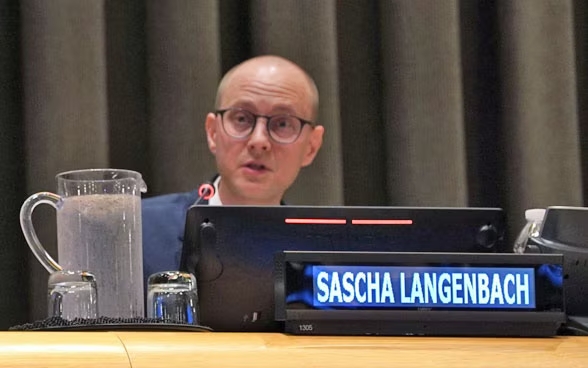Briefing at the UN Security Council
Dr. Sascha Langenbach from the Center for Security Studies briefed the UN Security Council during an 'Arria-formula' meeting hosted by Switzerland.
On 17 May 2024, Switzerland organised an ‘Arria-formula’ meeting of the UN Security Council to strengthen the Council’s interaction with the scientific community. As part of the meeting, Dr. Sascha Langenbach of the ETH Center for Security Studies (CSS) briefed the UN Security Council on the ability of machine-learning tools to assist with information processing in UN peace operations. Dr. Langenbach also made recommendations to the Security Council on how the UN can expand its internal data-analytical capacities. UN member states, including Council members, provided statements on the meeting’s overarching question of how to unlock the potential of science for peace and security.
In his briefing, Dr. Langenbach noted that:
- Reliable data is the best foundation for an impactful analysis, whether it is based on machine learning or not. As such, the Security Council should further strengthen the data-collection capacities of UN peace missions and encourage the harmonisation of collection procedures across missions.
- The Council should promote more attractive pathways to onboard interns and fellows with AI expertise. It should also encourage the relevant UN Departments to more actively engage students from STEM subjects, for instance through coding competitions with a peace and security theme.
- The Council should use open-data policies to promote the application of data-science tools to questions with a UN peacekeeping link.
